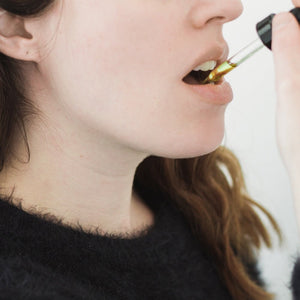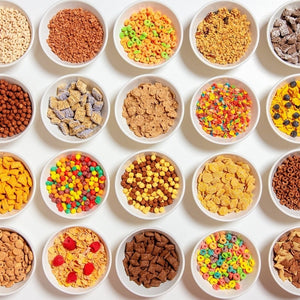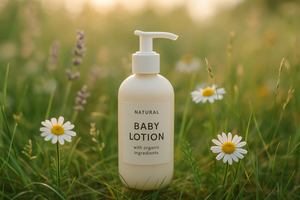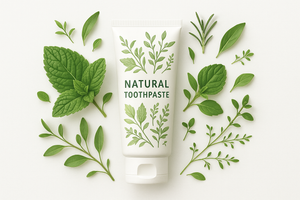Is yogurt healthy?
First things first: Do you know what makes yogurt, yogurt? Yogurt is a cultured or fermented milk product that is soured and thickened by adding specific lactic acid-producing cultures to milk. (Fun fact: Sour cream is cream with a different group of cultures added).
Yogurt has been touted as a health food for as long as I can remember. Pediatricians often recommend yogurt as a good source of calcium for babies and kids.
Indeed, if done right, yogurt can be full of probiotics, calcium, protein, and other healthful nutrients. However, dairy food in general is problematic for the environment. Moreover, yogurt can pack lots of sugar and other questionable ingredients. As with most products, you have to know how to read a label when perusing the yogurt aisle in your grocery store!
If you choose to avoid dairy, there are some healthy vegan alternatives but also some not so healthy vegan options. You’ll learn about these below.
Is vegan yogurt healthy?
In general, I try to follow a semi-vegan diet, but I’m also committed to not eating food-like substances.
I find it problematic when the “food” in question is imitating products made from animals (be it dairy or meat) and has some unrecognizable ingredients. Plant-based yogurt options can have gums and thickeners added to give them the right consistency. Because lactose in dairy is naturally sweet, yogurt made from milk often requires less added sugar than vegan yogurts do.
That said, some of the healthiest yogurt brands out there now are plant-based. Two of them even made our Best Stuff list!
Maia likes these silicone molds to make a healthier yogurt squeezy. You can use a high quality plain yogurt and just mix with fruit-sweetened jam. They are also delicious frozen!
Does all yogurt contain probiotics?
While doing the research for this guide, I came across tons of articles that claimed that if yogurt is pasteurized, it won’t contain any live/active cultures. This is technically true, but doesn’t apply to any yogurt you’ll find in the United States, because the cultures are always added AFTER the milk is pasteurized.
I couldn’t find a single brand of yogurt that didn’t contain at least two live cultures. Many contain as many as five or six, which is obviously even better.
All yogurt will have Lactobacillus bulgaricus and Streptococcus thermophiles. The healthiest yogurt might have Lactobacillus acidophilus, Lactobacillus casei, Bifidus, and other strains.
The big deal with probiotics is that they help maintain the balance of bacteria needed to boost the immune system and promote a healthy digestive tract.
Related: Probiotic Supplement Shopping Guide
Is the healthiest yogurt Greek yogurt?
Greek-style yogurt is everywhere these days, and some of you probably think it’s much tastier than regular yogurt. But is it the healthiest yogurt? In a word: yes.
To make yogurt “Greek,” the whey is strained off (whey is the milk’s watery component after the milk has curdled). This is why Greek yogurt is denser and richer.
Here are the key differences between Greek and regular yogurt:
- Protein: Greek yogurt has almost double the protein of regular yogurt.
- Fat: Unless you’re eating the nonfat varieties, Greek yogurt has about three times the saturated fat of regular yogurt.
- Sodium: Greek yogurt contains about half the sodium of regular yogurt.
- Carbohydrates/Sugars: Greek yogurt contains roughly half the carbohydrates (sugar) of regular yogurt. This is because much of the lactose is strained off, and lactose is where the sweetness comes from. Of course, adding sweeteners to either one will increase the carbohydrate count.
























































